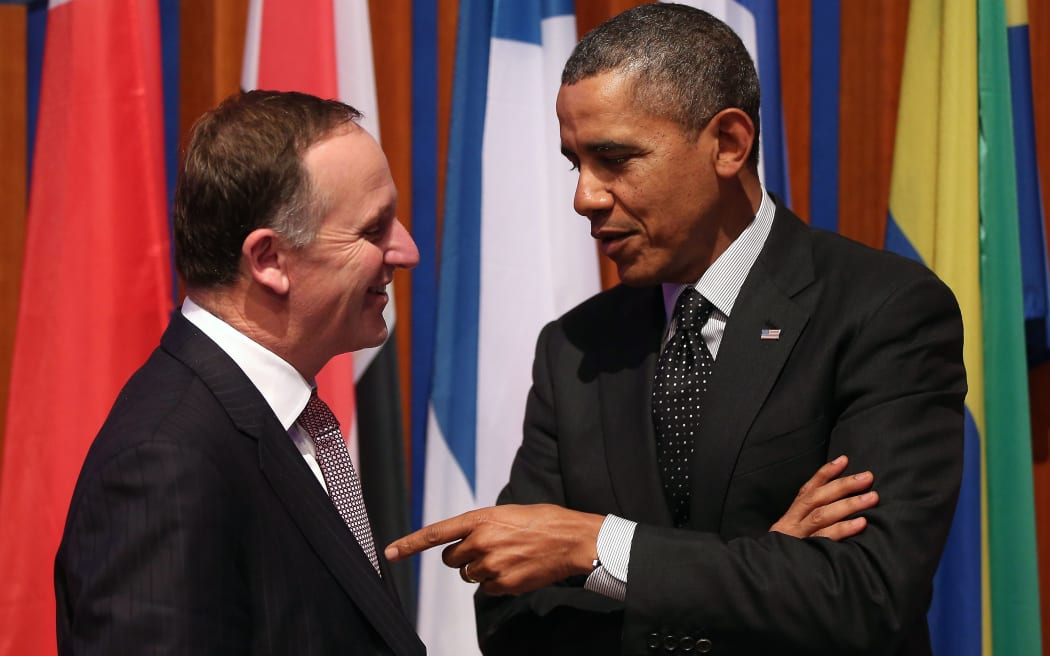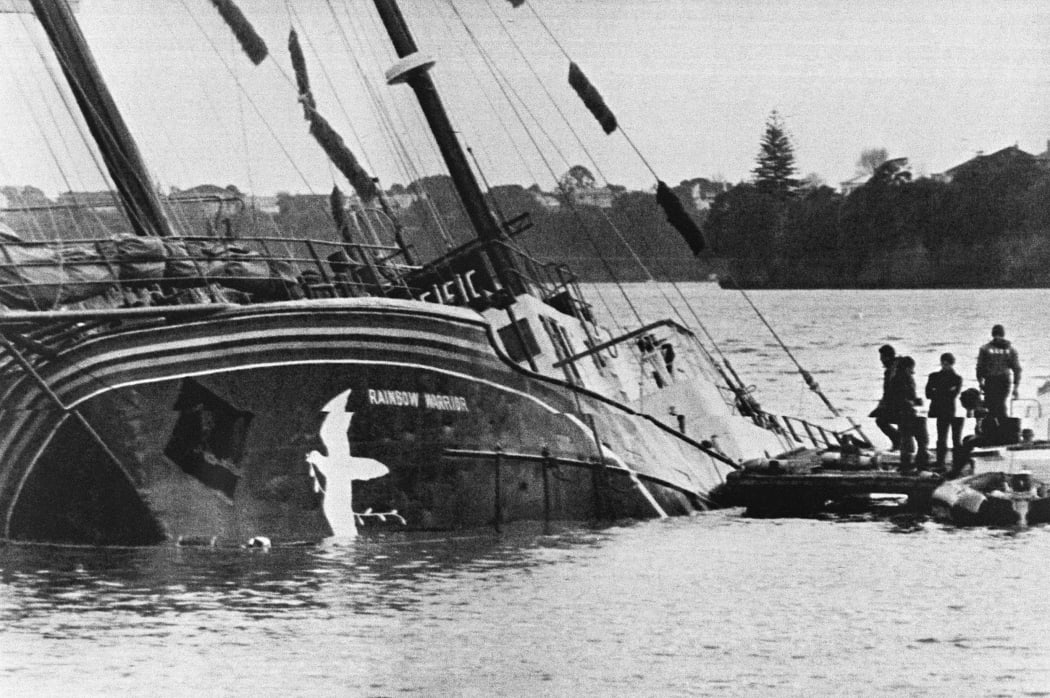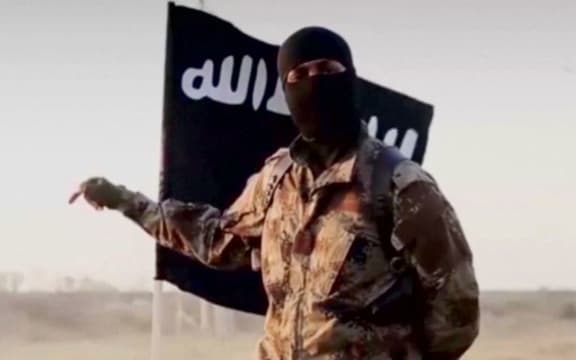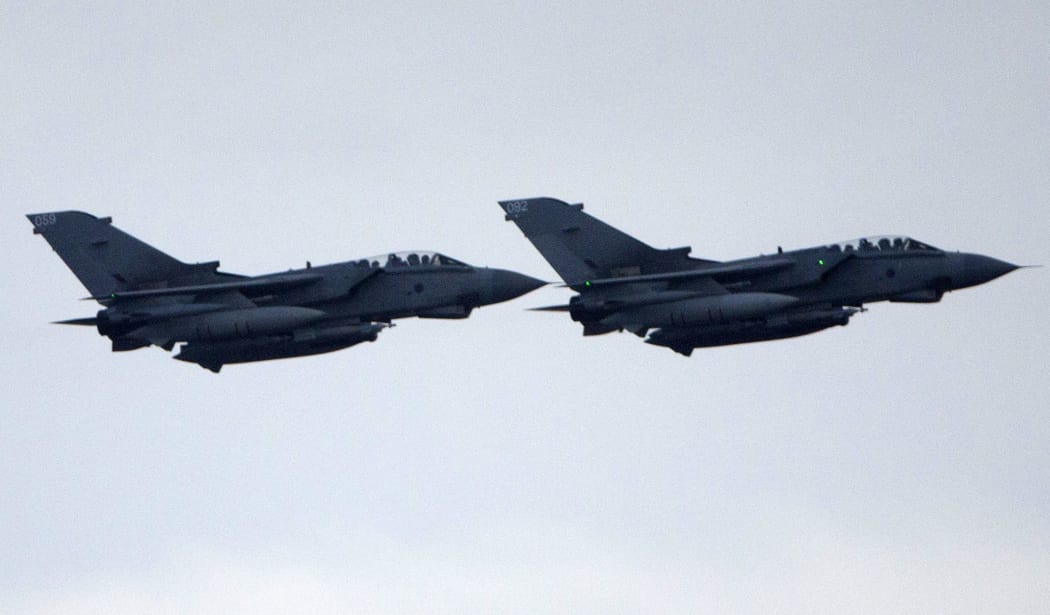Prime Minister John Key is adamant New Zealand will not be sending troops to Iraq to help in the fight against Islamic State insurgents. Well, he was in June.
At that time, just before meeting US President Barack Obama in Washington, Mr Key ruled out sending New Zealand's elite SAS troops to Iraq in a training role.

John Key is likely keen to attend a string of meetings next month where he will rub shoulders with Barack Obama. Photo: AFP
Four months later, everything has changed. Now, Mr Key says all options are being considered - even a direct combat role - although that is the least favoured approach.
The Prime Minister has made a perceptible shift in his stance over several weeks as he has cleverly softened public opinion to the likelihood of New Zealand involving itself in the war against IS.
Yet he has still not delivered a clear strategic argument why any involvement in the military fight would do New Zealand or the Middle East any good.
While there has been plenty of spin about why New Zealand should involve itself in the fight, the reality is much different.
Terrorism, we are told, is a new and dangerous threat to our security. There is truth that terrorism is a threat. But politicians who peddle that line as though it is new appear to have no knowledge of recent history.
What about New Zealanders, for instance, caught up in IRA bombings in Britain during the 1970s and 80s? What about the fear people had of flying because of the hijacking of aircraft, long before the terrorist attacks on the Twin Towers in New York in 2001.
What, too, about the killing of Ernie Abbott in the Trades Hall bombing in Wellington in 1984? Or the death of Fernando Pereira in the bombing of the Rainbow Warrior in Auckland Harbour a year later. Both were acts of terrorism.
In the case of the Rainbow Warrior, New Zealand did not engage in military action against France despite its responsibility for the attack.

The Greenpeace flagship Rainbow Warrior lying in Auckland harbour after it was bombed in 1985. Photo: AFP / New Zealand Herald (files)
What's in it for NZ?
There is no doubt that the Islamic State is a ruthless, terrorist organisation. But will New Zealand do any good by taking part in some sort of military action against it?
The history of the Middle East is littered with multiple examples of Western military intervention. None of them have been a success. Indeed, the threat the Islamic State now poses to the region can be linked to earlier military interventions from the West.
So what is New Zealand's strategic interest? It is likely driven mainly by the belief that this country should play its part in the US-led alliance.

The face of Islamic State. Photo: REUTERS / FBI
Big power politics still matters and this Government is intent on maintaining a strong relationship with America. John Key is likely keen to go to a string of international meetings next month - where he will rub shoulders with President Obama - with a firm commitment from New Zealand to action.
While he says the Government is still considering its options, his language has become much more hawkish about committing forces to the fight - even if not in a frontline role.
The question is if New Zealand does get involved, will it become part of the solution or part of the problem? Earlier interventions would suggest the latter.
And would any intervention make New Zealanders safer here and overseas? Again, that is not likely. Countries involved in the coalition against IS are likely to become more of a target, not less.
That is not a reason not to become engaged if there is a clear strategic aim and a persuasive argument that military involvement will make things better, not worse. So far Mr Key has been unable to mount that argument.
Instead, as in other Western countries, much of the debate is fanned by scaremongering as governments cajole their publics to support military intervention.
In Australia - a country with ambitions of being a middle power - there is bipartisan support for its decision to send fighter aircraft to take part in bombing raids on IS positions, as well as SAS troops to train Iraqi forces.
Australia's decision is likely to also weigh heavily on the Government's mind here. But National is not as likely to get support from Labour for any decision to make a military contribution to the fight against IS.
Labour politicians and the Greens are sceptical about the logic of engaging in that military exercise.
John Key and his colleagues do have a heavy burden to carry. Putting New Zealand troops in harm's way is the single biggest responsibility a Prime Minister has.
Before deciding that Mr Key will be want to be very sure the Government's making the decision for the right reasons. Keeping on side with its friends and partners is not reason enough to put New Zealanders' lives at risk.

Britain and Australia have joined the US in airstrikes against Islamic State in Iraq. Photo: AFP
Follow Brent Edwards on Twitter @rnzgallerybrent

